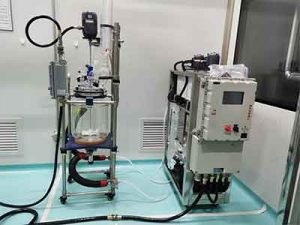closed loop water cooling system
Closed-Loop Water Cooling Systems: Efficient Heat Dissipation and Water Conservation
Closed-loop water cooling systems are engineered to provide a reliable and efficient method of heat dissipation in various industrial and commercial applications. These systems are particularly beneficial in environments where the conservation of water resources and minimal maintenance are of utmost importance.

How Closed-Loop Water Cooling Systems Work
In a closed-loop water cooling system, the primary circuit contains the fluid that needs to be cooled, while the secondary circuit includes the cooling tower or heat rejection unit. The two circuits are connected by a heat exchanger, allowing heat to be transferred from the primary circuit to the secondary circuit without the fluids mixing.
The closed nature of these systems means that the water used for cooling is continuously recirculated, significantly reducing water loss through evaporation compared to open-loop systems. This design also minimizes the risk of contamination, as the water does not come into direct contact with the external environment.
Advantages of Closed-Loop Systems
Water Conservation: Closed-loop systems drastically reduce water consumption, as minimal makeup water is needed to compensate for evaporation losses.

Reduced Maintenance: The closed-loop design reduces the need for frequent water treatment and chemical additions, which are common in open-loop systems to control biological growth and corrosion.
Consistent Performance: These systems maintain consistent cooling performance because they are less susceptible to fluctuations in water temperature and quality compared to open-loop systems.
Energy Efficiency: Closed-loop systems can be more energy-efficient than open-loop systems, as they often require less pumping horsepower due to their design and operation.
Flexibility in Installation: Closed-loop systems offer more flexibility in terms of installation location, as they do not need to be situated at a specific height relative to the connected system piping.
Applications of Closed-Loop Water Cooling Systems
Closed-loop water cooling systems are used in a variety of applications, including:
Industrial Processes: In manufacturing and processing facilities, these systems cool process fluids, machinery, and equipment to maintain optimal operating temperatures.

Data Centers: They are used to cool servers and other high-density computing equipment, ensuring reliable performance and extending the life of the hardware.
Chiller Systems: Closed-loop systems are integrated with chillers to provide cooling for HVAC systems in large buildings, reducing energy consumption and improving efficiency.
Power Generation: They are used to cool turbines and other critical components in power plants, ensuring safe and efficient operation.
Technical Specifications and Considerations
When selecting a closed-loop water cooling system, it is important to consider factors such as the heat load, fluid type, temperature control requirements, and the overall system design. The system must be designed to accommodate the specific cooling needs of the application while ensuring efficient heat transfer and minimal energy loss.
In conclusion, closed-loop water cooling systems offer a reliable, efficient, and environmentally friendly solution for heat dissipation in various applications. Their ability to conserve water and reduce maintenance requirements makes them an attractive choice for industries looking to optimize their cooling processes while minimizing their environmental impact.
Related recommendations
industrial water cooling system
317Industrial Water Cooling System: A Comprehensive Guide Introduction In the industrial landscape, maintaining precise temperature control is often a prerequisite for the efficient and relia...
View detailschiller cool
822Chiller Cool: Definition and Working Principle A chiller cool system, or simply a chiller, is a mechanical refrigeration system that provides cooling for various applications. Chillers work on ...
View detailsGlass Reactor Cold and Heat Cycle Device
1319Glass Reactor Cold and Heat Cycle Device The glass reactor cold and heat cycle device is widely used in industrial production and plays a very important role. Especially in the chemical indu...
View detailswater chiller efficiency
129Introduction to Water Chiller Efficiency Water chillers are vital refrigeration systems that cool water (or water-glycol mixtures) for air conditioning, industrial processes (e.g., manufacturi...
View details
 LNEYA Chiller
LNEYA Chiller






HelloPlease log in